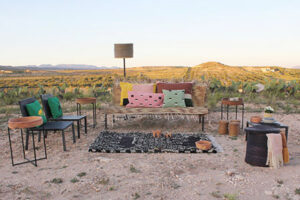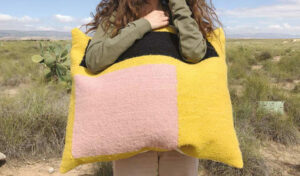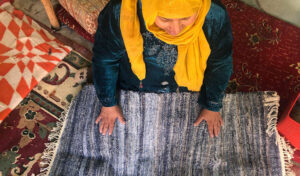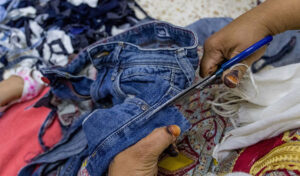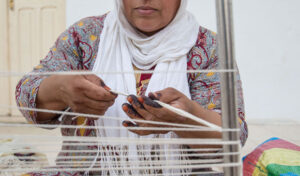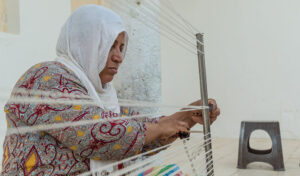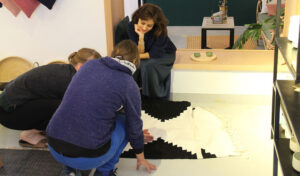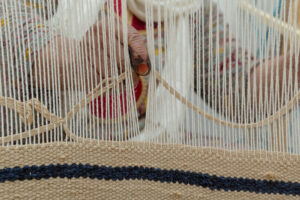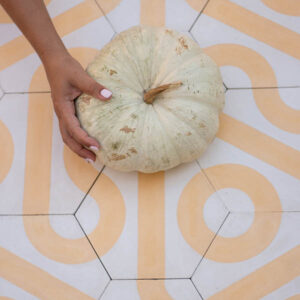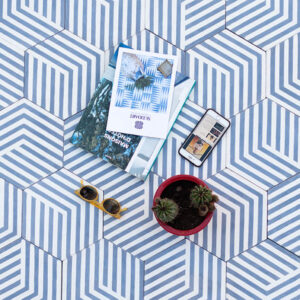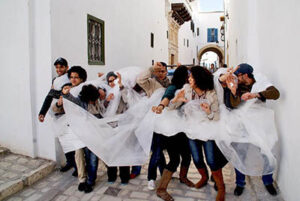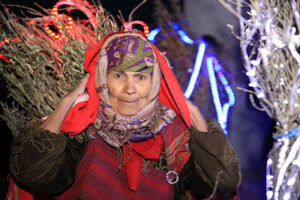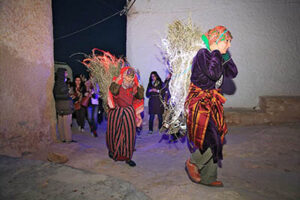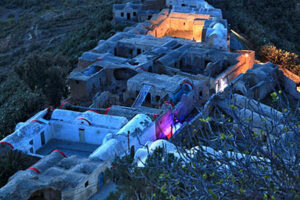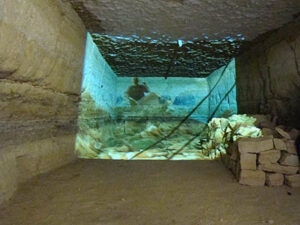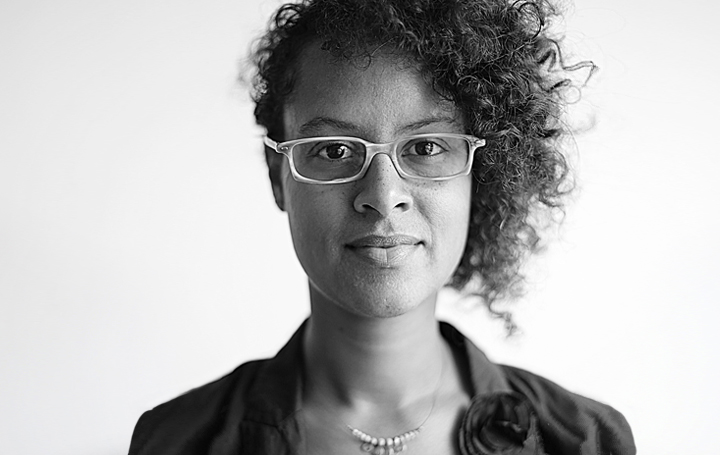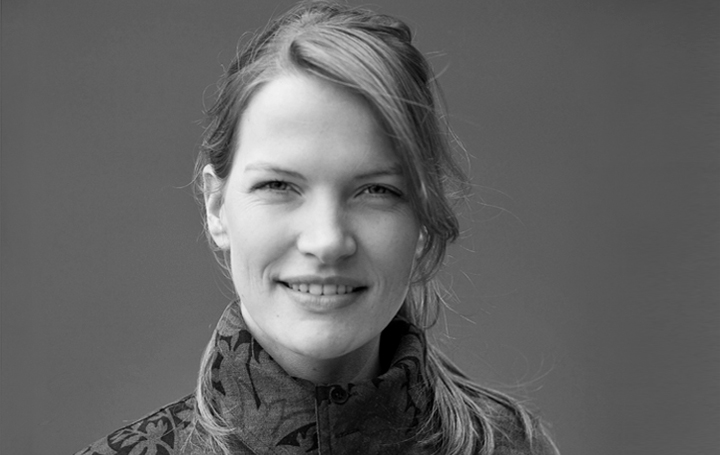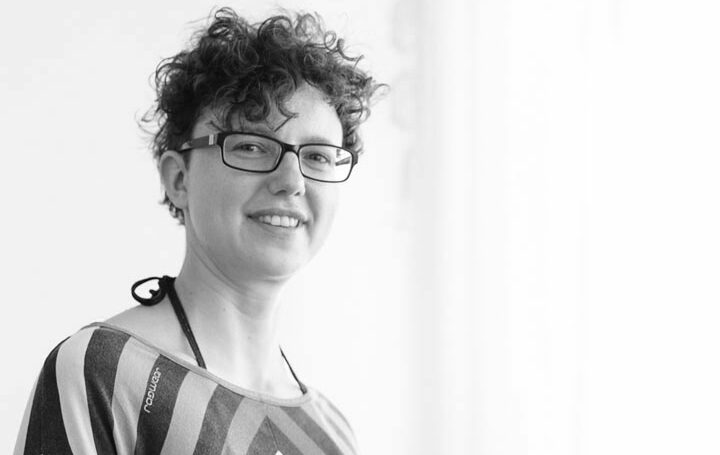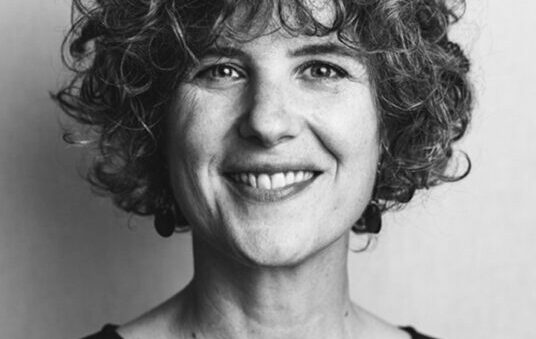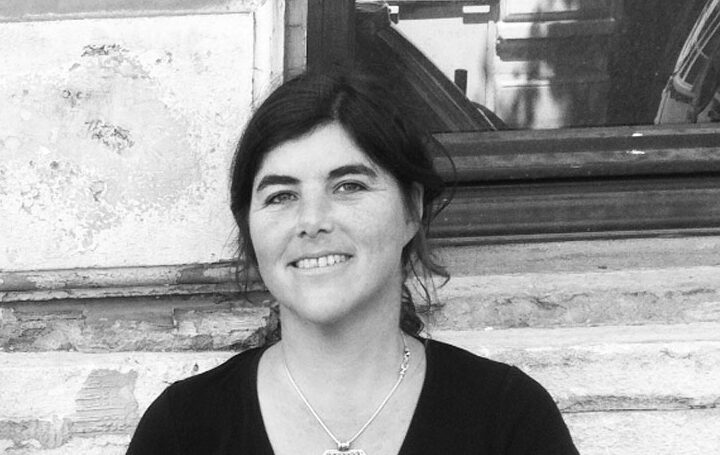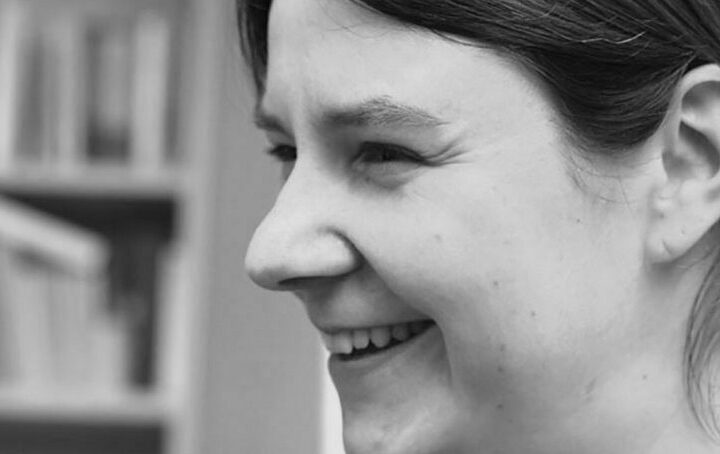ökoRAUSCH goes Thessaloniki II
29. Juni 2020Design & Crafts in Tunisia
Tunisia is famous for its arts and crafts scene. Naturally, designers attempting a more sustainable production approach are turning towards working with artisans. In their workshops they find a source of local hands-on production capacities with great skills for creating products with local identity, durability and lower CO2-emissions. Vice versa, cooperating with the designers means new income possibilities for the artisans.
The potential of the union of design and crafts is grasped by several stakeholders: the Design school of Tunis (Ecole Superieure Des Sciences et Technologies Du Design) is offering a Master Studies on Design for the Sustainable Development of Local Handicraft Productions (“DDD-Design Pour Le Développement Durable Des Productions Artisanales Locales”). Minassa, an incubation hub providing creative start-ups with entrepreneurial skills defines crafts as a branch of the creative industries ready to march off. Oxfam steps in and supports L’Artisanerie, an initiative giving structural, social, economic and marketing consultancy and support to artisans all over Tunis. The UNESCO honors the pottery of the town Sejnenia by declaring it a world heritage. The project Jbal from Kasserine sees working with design and crafts as a chance to strengthen local identity and to stabilize youngsters against extremist influences.
How do these initiatives give artisans the support they need to utilize the full social, economic and creative potential of their crafts?
L’Artisanerie is run by Lobna Saidi and works with artisans of different crafts all over Tunisia, from carpet weavers, potters, basket weavers to palm wood carpenters. The showroom in Tunis offers new marketing and publicity opportunities. One of the crafts producers is El Mensej, a collective of women weaving upcycling carpets in Nefta, an oasis town in the South of Tunisia. The women used to produce the handwoven carpets in their homes hence their activity was never regarded as a real job or paid by their families and society. Shanti, a local cooperation partner of L’Artisanerie, installed the structure that was missing: a local neighborhood working room, like a co-working space, where the women can actually pursue their work of weaving carpets any time that suites them, but are still near their homes so that they can still take care of their household chores. L’artisanerie provides marketing possibilities with the showroom in Tunis and with orders from customers from Tunis and Europe. By the sales of the carpets the women earn a living – for almost all of them it’s the first time in their lives.
The Master DDD (“DDD-Design Pour Le Développement Durable Des Productions Artisanales Locales”) aims at providing the design students with the full capacity of realizing a business with traditional crafts. They not only learn and practice their design skills and technical understanding of crafts, but at the same time how to work with artisans in an equitable way so that the design outcome is based on true artistic collaboration. Therefore, the human scale of working together is given great importance. The students practice these skills in hands-on-projects with artisans. Besides, they learn all the economic marketing skills to make a business out of their product idea. As the master runs successfully since several years, the graduates already prove themselves as successful entrepreneurs. For example, Khansa Yazidi reinterprets the Tunisian bathroom by designing brass fittings, taps, basins and towel holders handmade by local artisans in unconventional playful shapes; e.g. the piping of a tap can take the shape of a flamingo. Mariem Ben Abid founded the internationally successful company Suddart which produces and sells a wide arrangement of beautifully designed ceramic tiles.
Crafts also come in when projects deal with preserving cultural heritage and identity. The initiative Djerba Insolite aims to save the craft traditions of the island Djerba in the collective memory by opening them up to new influences and inviting designers to create new designs with the artisans.
The artist Sana Tamzini sets another statement of preserving and reviving traditional crafts and skills with her artistic work. She creates light installations, photography, videos and art performances in public space actively integrating local people. In her site-specific works she records and transmits disappearing traditional customs, craft skills and agricultural practices and interprets their importance for identity. In the village of Takrouna she realized an installation and a performance relating to the gathering of Esparto Grass which is used for weaving doormats and baskets. In the village of Chénini she created an installation, projection and performance by working with the last stone breaker of the area by projecting him during his work into a cave that had been created by other stone breakers in the past.
The vibrancy and importance of crafts in Tunisia mean a wonderful playground and chance for Tunisian product designers. Whereas designers in Western Europe are often faced with the situation of the actual production taking place all over the world, Tunisian designers find hand-on crafts production right in from of their door which makes it easier to start small scale individual crafts productions. So the merging of crafts and design in Tunisia means great chances and benefits for both of them, designers and artisans.
Fotos:
Jbal: Marouan Zbidi
L’Artisanerie: Mohamed Amine Charbti
Suddart: Suddart
Sana Tamzini: Mejdi Bekri
___________________________
Die Recherchereise nach Tunis und Thessaloniki im Rahmen des ECO DESIGN FORUM international veranstalten wir als Kooperationspartner der Stadt Köln. Das Projekt wird gefördert durch die Stadt Köln aus Mitteln der Partnerstadtprogramme und Engagement Global aus Mitteln des Landes Nordrhein-Westfalen.
